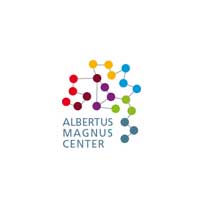The main author of the "Cologne Model for Structured Doctorates", Prof. Dr. Dr. h.c. Andreas Speer, spokesperson of the Albertus Magnus Center (AMC), discusses the background, goals and contents of the model.
Professor Speer, how did the Cologne Model come about?
The idea originated in the AMC Governing Body, which was founded in 2018. Within this framework, the six Faculties of the University of Cologne (UoC) intensively exchanged ideas on the topic of doctoral studies. This also included a systematic analysis of how the processes and contents of a doctorate are structured in the Faculties. In addition to Faculty-specific features, many commonalities have been identified in terms of what can be considered a structured doctorate; which special, but also interdisciplinary services are included in the Faculty-specific curricula, and how doctorates are financed.
The comparison showed the similarities with regard to the structures of doctoral supervision in the Faculties. For example, the membership of doctoral researchers in the central graduate schools and their offers as well as general quality standards of a doctorate. At the same time, however, areas became apparent where flexibility in doctoral studies is yet necessary according to the different subject cultures. In addition to funding, this includes, for example, the duration of a doctoral programme: e.g. doctorates completed part-time in comparison with full-time doctorates for which extensive funding is available that makes it possible to concentrate exclusively on the doctorate. This is also in line with the results of scientifically evaluated surveys, such as the National Academics Panel Study (Nacaps).
What was the reason for developing a joint mission statement?
The doctorate represents an outstanding academic qualification, whose supervision and implementation are one of the core tasks of a university. That is why it was an important goal of the UoC to think about a common framework for doctoral studies in the form of a common guiding model that can be applied in each of the Faculties and to which the entire university is committed.
In this way, all those involved in a doctorate at the UoC, i.e. doctoral candidates as well as supervisors and other persons in charge in the Faculties, have a common idea of which elements should be included in the supervision of a doctorate and how these can be achieved.
This discussion on how to design this desired common framework was an interesting and important process for all those involved, which at the same time made it possible to identify important common elements of a doctorate at the UoC and also to benefit from each other's experiences as part of a common culture of doctoral supervision.
For whom is the Cologne Model relevant?
First of all, the model is important information for all those interested in obtaining a doctorate in terms of what they can expect if they choose the UoC. In this way, we would like to contribute to attracting the best Early Career Scientists to complete their doctoral programmes at the UoC in the future.
Thanks to the Cologne model, it is also possible for the UoC to address issues collectively in an unprecedented manner when discussing doctoral issues with other institutions (e.g. the German Research Foundation). The conditions of doctoral studies in Germany continue to be an important topic of development processes at universities. The Cologne Model offers a common idea of how we would like to help shape these in the UoC's interests. It helps to identify the commonalities between the Faculties, but also to always be aware of where flexibility is required.
Last but not least, the Cologne Model represents a well-founded basis of the UoC, so that stakeholders and third-party funders consider the UoC as an attractive research location, for example in funding applications.
What exactly does the Cologne Model entail?
A doctorate not only qualifies for an academic career, a large part of doctoral graduates also continues their own careers in non-academic fields. This has to be considered when designing a supervision concept for doctorates. This is why the model focuses on excellent academic support as well as optimal preparation for academic and non-academic career options.
The Cologne Model acts as a guiding principle that is intended to ensure the best possible supervision for all doctoral candidates at the UoC, regardless of their Faculty, form of doctorate and funding. The aim is a transparent and comparable organization of doctoral programmes while taking into account the -specific characteristics of the respective Faculty and subject.
The Cologne Model comprises seven structural elements of good supervision. The Faculties are to ensure the subject-specific as well as the interdisciplinary and extra-occupational framework conditions for high-quality supervision, which are at the same time adapted to the subject-specific requirements in the best possible way.
The supervision agreement is also already an important standard component of most doctoral programmes at the UoC and is therefore another structural element. Here, too, it makes sense for such a supervision agreement to be adapted to the special features of doctoral programmes and the requirements of the Faculties to fulfil its purpose.
Doctoral candidates can make use of the offers accompanying their doctoral studies such as continuing professional development, counselling and access to academic networks of the Faculties and central structures, such as the AMC. We have been working together closely and very successfully in this matter for years.
What do you consider to be the most important aspect of the Cologne model?
For me, the most important aspect is that the UoC has developed this mission statement to enable a successful doctorate. Thereby clearly signaling to everyone the importance it attaches to finding the optimal conditions for successful course progression and completion of a doctorate. The fact that this has been achieved together with all Faculties and graduate schools underlines the importance of this topic for the UoC.

